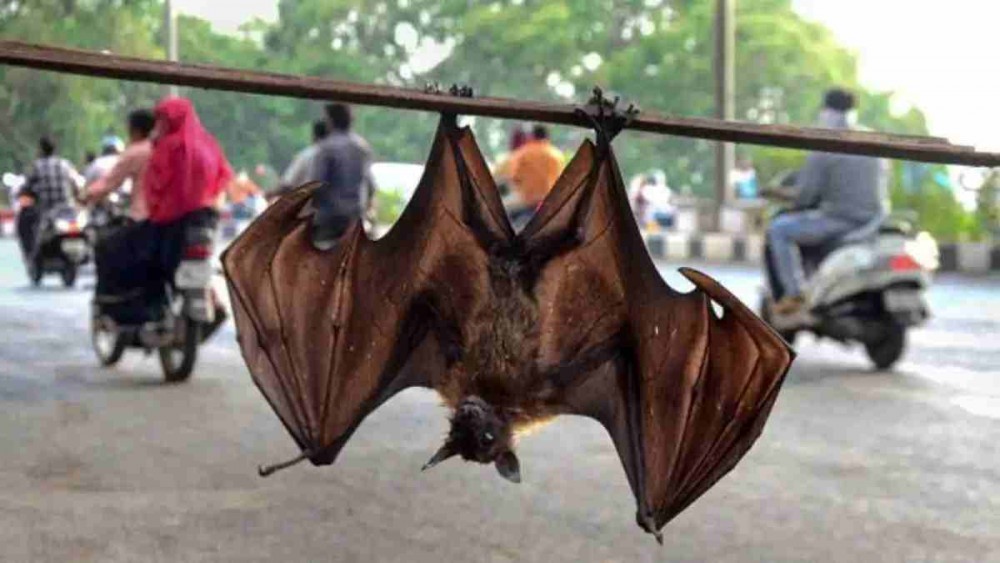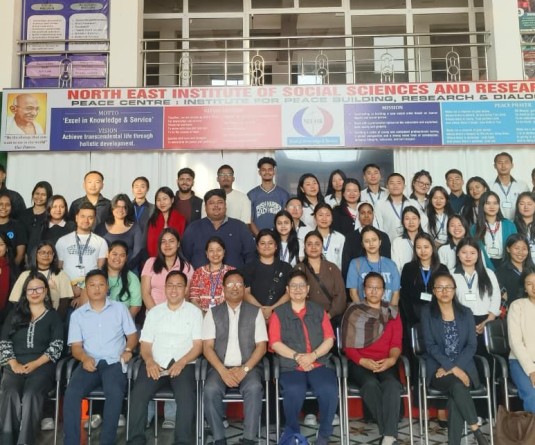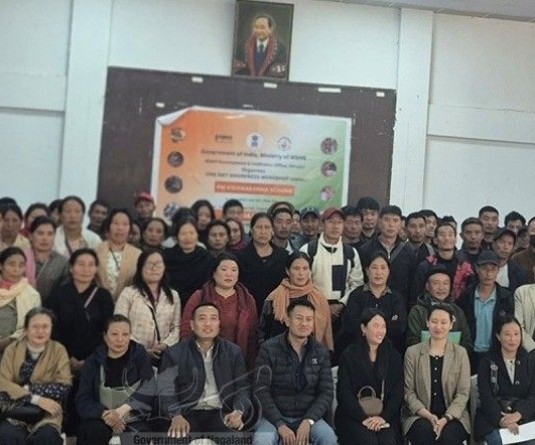PTI File Photo

Morung Express News
Dimapur | June 15
More than a year after it reported that an enquiry is being initiated into whether adequate permissions had been sought for a study on bats in Nagaland, The Hindu in a follow-up on June 15 claimed that a government report has concluded that there had been “concerning lapses” in the conduct and protocols followed for the study.
An ‘inter-department row’ also continues over “where the bat samples should be stored,” the newspaper said on the study conducted by the Bangalore-based National Centre for Biological Sciences (NCBS) and Tata Institute of Fundamental Research (TIFR). It was partially funded by the US Department of Defence through its Defence Threat Reduction Agency (DTRA), according its initial report.
The Hindu had first reported on the study on February 3, 2020. Among others, the inclusion of two scientists at the Wuhan Institute of Virology as “co-authors” of the study when it was published has added to recurrence of the issue in the public domain.
'No way related' to COVID
While the findings of the report became significant given the debate over the origins of the COVID-19 worldwide; scientific experts and officials that The Hindu spoke to made it clear that the Nagaland bat study on filoviruses (Ebola and Marburg) was in no way related to the coronavirus (SARs) studies at Wuhan, the latest report stated.
However, citing a report prepared by the Ministry of Health, it informed that a committee was convened by the Indian Council of Medical Research (ICMR) last year consisting of officials from the Ministries of External Affairs, Defence, Home Affairs, Health, Environment, Law, Departments of Science & Technology, Development of North Eastern Region, and others met to “to streamline processes and avoid such lapses in the future.”
When contacted, NCBS Director Satyajit Mayor said he had no knowledge of the Health Ministry’s report’s conclusions and said that it is not “aware of lapses,” and directed all further enquiries on the clearances and bat samples to the Ministry of Health, it added.
However, the newspaper maintained that both the Ministry of Health report dated February 2021, as well as a series of communications between the Ministry and the Department of Atomic Energy, which oversaw the NCBS study referred to the issues.
The Hindu has seen copies of these documents, it maintained.
The Health Ministry report, according to The Hindu, stated that the research publication “raised serious concerns as the samples were collected from humans and bats with intent to test for viral pathogens.”
Further, the report said that the “study didn’t have the requisite approval of ICMR” and the facility at NCBS further “was not equipped in terms of biosafety and biosecurity to undertake such testing,” it said.
The report further said that the “inquiry committee (including Health Ministry and ICMR officials) visited NCBS, Bangalore as well as Nagaland to understand the work done, methodology followed, and places visited during the course of the study” and they found “concerning lapses in the study protocols and procedures, The Hindu added.
“All the lapses were discussed and appropriate actions were suggested.”
In addition, The Hindu said that differences over the storage of the Nagaland bat samples between the Department of Atomic Energy (DAE), and the Ministry of Health continue, with the latter wanting the “samples of nucleic acid extract stored at the Bio Safety Level -4 (BSL-4) standard facility at the National Institute of Virology laboratory in Pune, rather than NCBS’s Bengaluru facilities, that are rated BSL-3 at present.”
NCBS’s stand so far
Meanwhile, when The Hindu first published the article on February 3, 2020, The NCBS issued a press statement that media reports “grossly misrepresent the facts concerning a study of bats in Nagaland.”
It further pointed out that its researchers have been studying bat antibodies in Nagaland since 2012. The Programme in Emerging Infectious Diseases of the Duke-National University of Singapore Medical School (Duke-NUS) which has been studying bat populations across Southeast Asia collaborated with NCBS in “which researchers based at NCBS collected samples of serum from bats and humans,” it said.
These samples were tested at NCBS using the technologies supplied by Duke-NUS and the test results were shared with them, to compare with the data obtained from their Southeast Asian studies. This study was published in October 2019 in a paper entitled “Filovirus-reactive antibodies in humans and bats in Northeast India imply zoonotic spillover,” it added.
It appeared in PLoS Neglected Tropical Diseases, a peer reviewed open-access journal and the documentation regarding this study is transparently available in the public domain, it added.
The NCBS further clarified that researchers from the Wuhan Institute of Virology were not directly involved in the study. “They were listed co-authors ONLY because they supplied reagents critical to the study to Duke-NUS. This is standard practice for scientific authorship,” it added.
No biological samples or infectious agents were transferred into or out of India, and this study has NO connection with Coronaviruses, it further underscored.
The NCBS is yet to react to the current report.
Meanwhile, The Hindu also clarified after its first report in February 2020, that the “report had nothing to do either with the novel coronavirus or with the research collaboration between India and China.”






